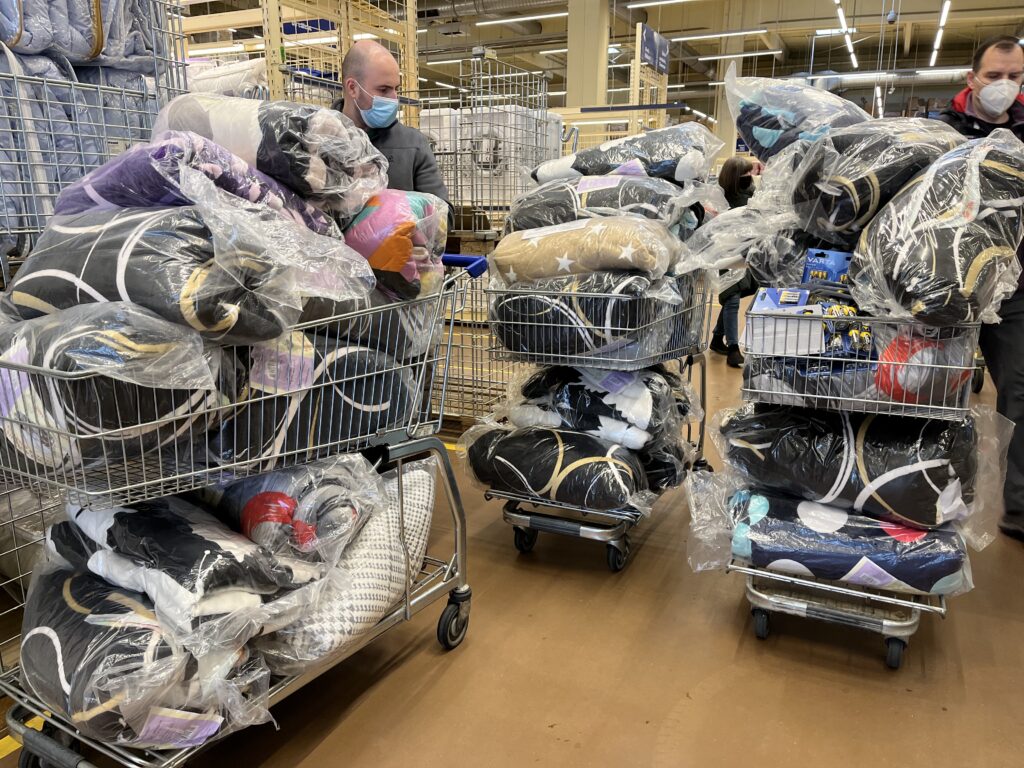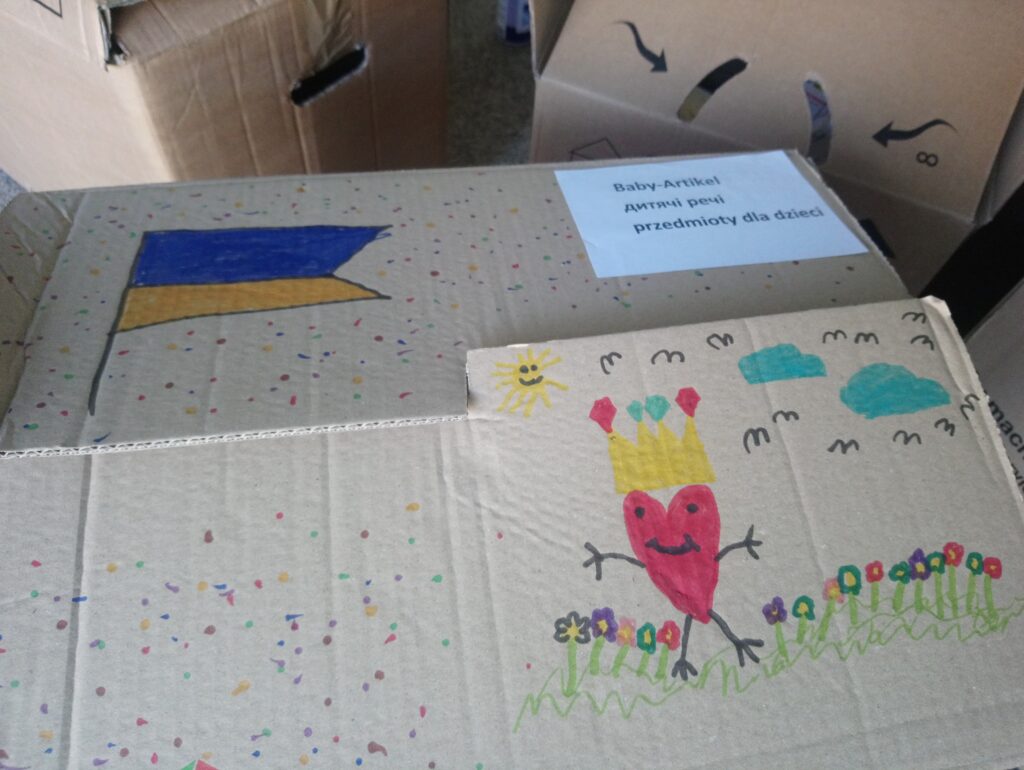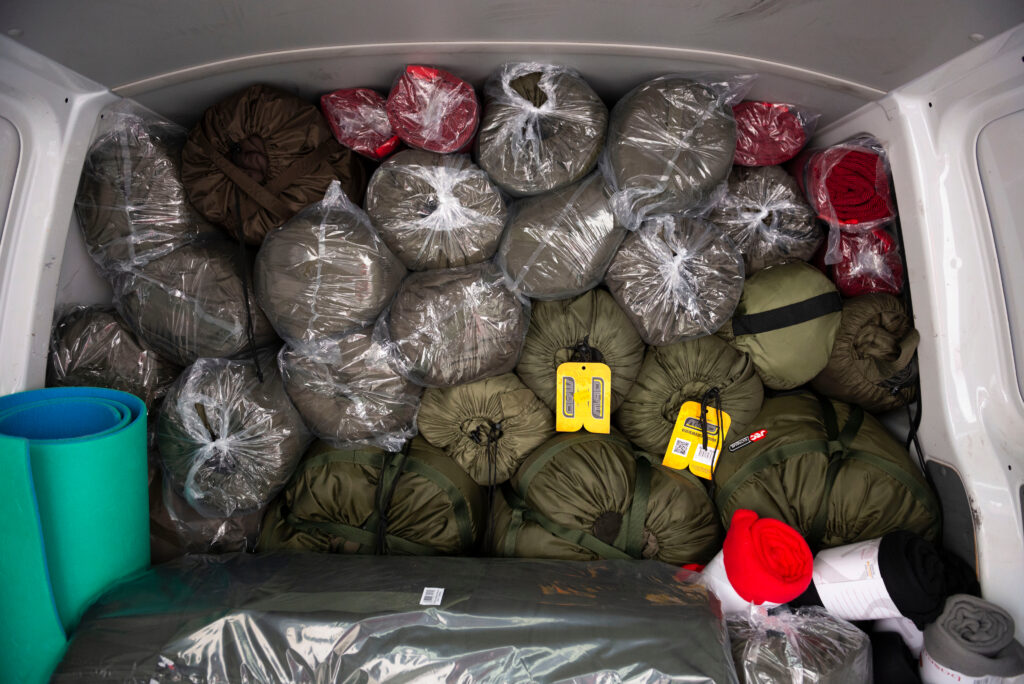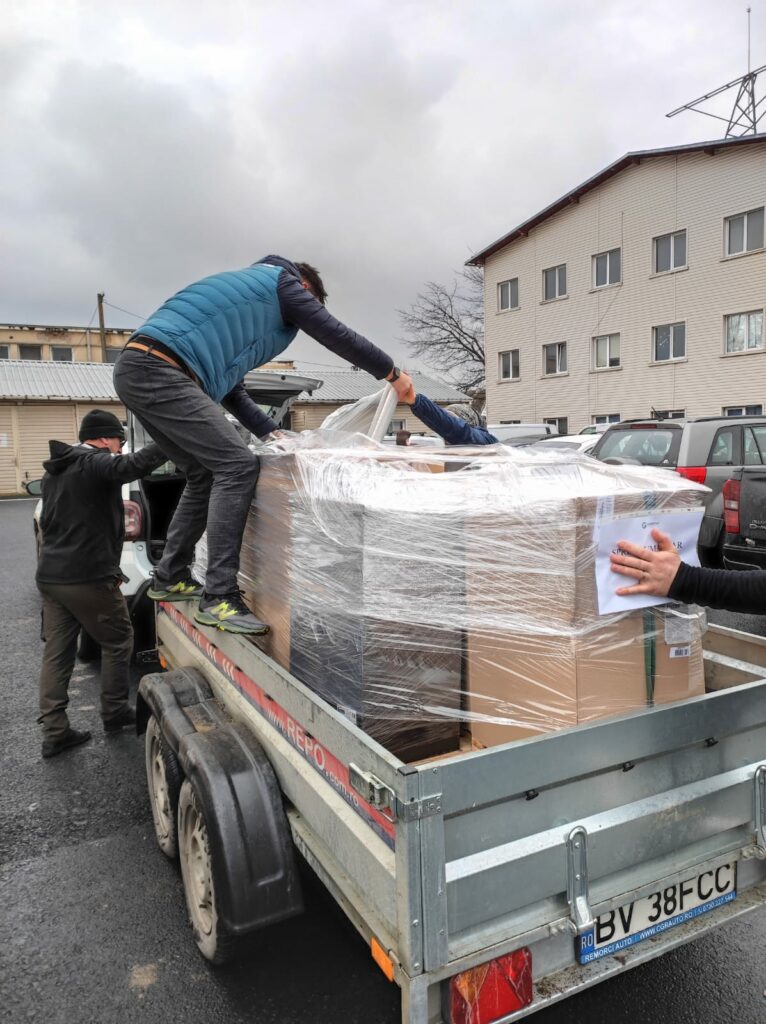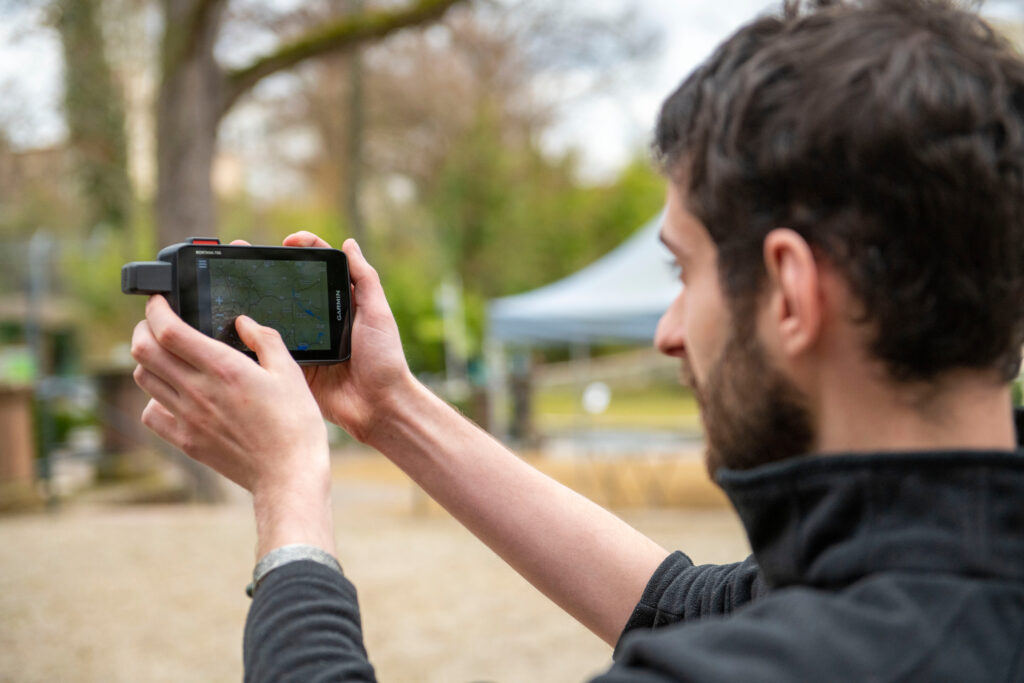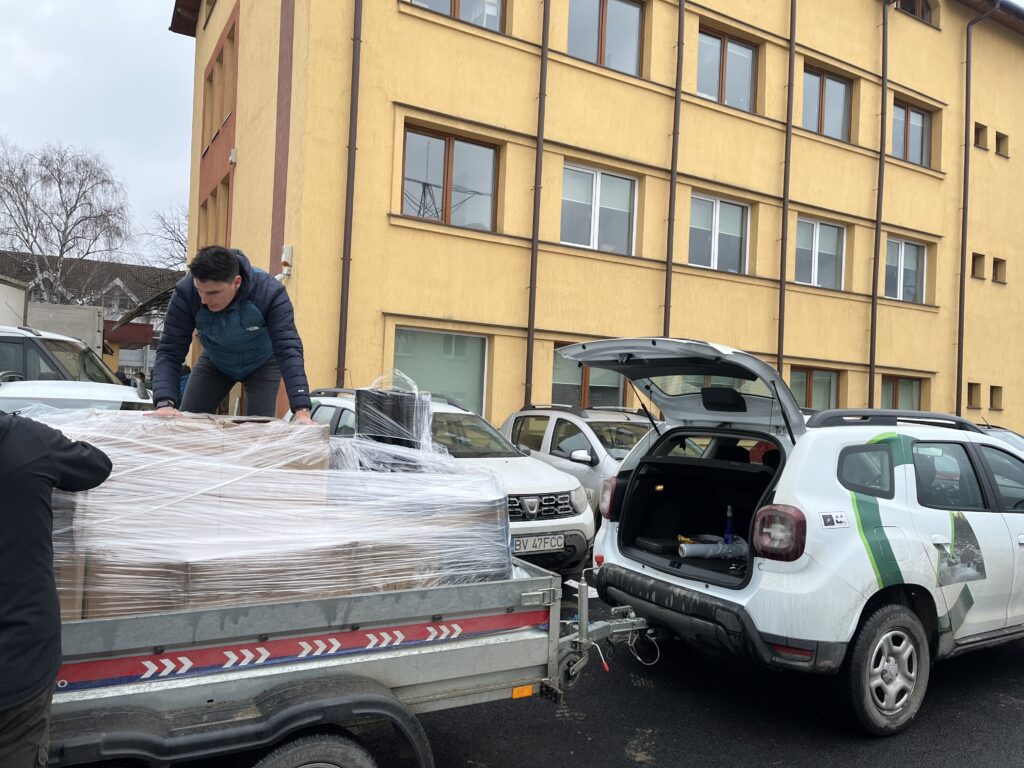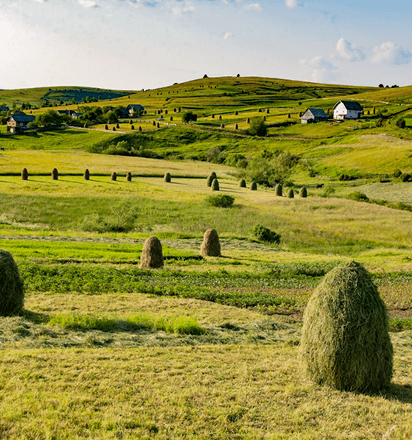Support Ukraine
After the full-scale Russian invasion of Ukraine, the Carpathian protected areas faced new challenges. They had to continue daily nature conservation activities in the face of significant funding cuts but also to shelter thousands of Ukrainians who were seeking a safe place to stay. During the early weeks, accommodation and supplies for the tens of thousands of people that arrived in the region were limited.
In March, FZS together with partners started to supply emergency goods for people located in facilities and houses belonging to protected areas and protected area staff. While the focus was initially only on people staying in protected area infrastructure, the establishment of increased logistical capacity allowed for the support to be expanded to also include people staying at so-called IDP centers (schools, gyms, kindergartens, sanitariums, etc.) in the villages and towns located in and around protected areas. Four storage and distribution hubs were set up to support these wider communities. Goods that included non-perishable food products as well as hygiene products and detergents, were purchased within Ukraine to support the national economy.
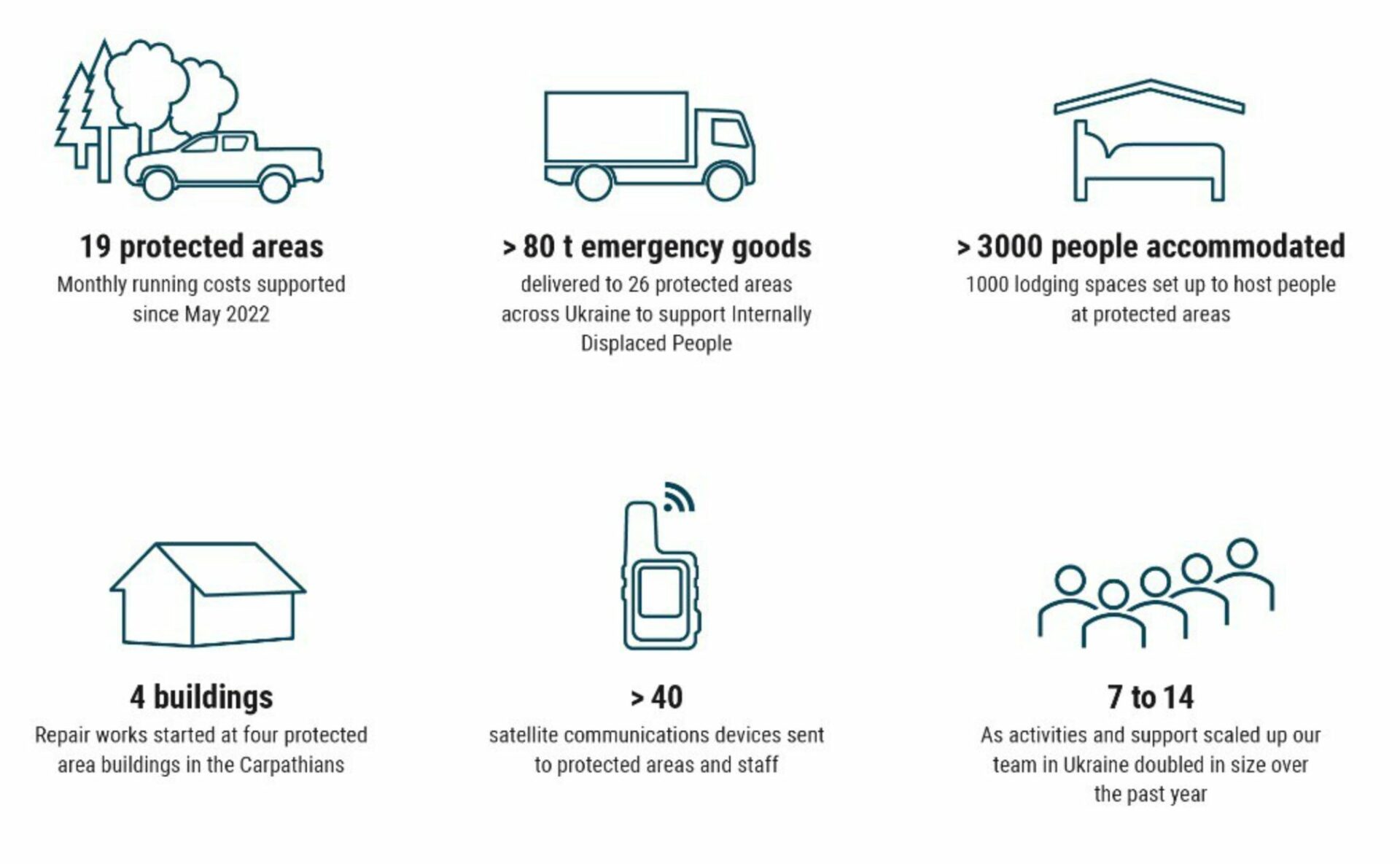
- Support monthly running costs from May 2022 till March 2023 for 19 protected areas currently cut off from other funding sources. Since March 2023 we had to focus on operational costs support of 13 protected areas in Carpathians due to funds limitations.
- Provide over 80 tons of emergency goods to accommodate and support Internally Displaced People (IDPs) in and around 26 protected areas across Ukraine – the first batch of these support goods were delivered within the first week after Russia’s invasion of Ukraine in February 2022
- Set up 1000 lodging spaces to host people at protected areas with over 3000 people passing through protected area IDP facilities
- Start repair works on four key protected area buildings in the Carpathians, with one roof repair project already successfully completed. Repairs on a further 13 buildings and ranger posts are in progress.
- Provide over 40 satellite communications devices to protected areas to allow seamless communications in case of war-related GSM connection issues
- Scale up our activities rather than scaling down – this impact required more capacity and for our Ukrainian team to double in size since February 2022.
Though our focus was to support the partner Carpathian protected areas, we could not stand aside seeing the severe challenges eastern parks faced during the war. During May 2022, we provided the first deliveries of supplies (including food, generators, pot-belly stoves for heating, and fire-fighting equipment) for several protected areas. However, due to logistical and security challenges assessing needs and arranging logistics became more and more difficult, especially given that FZS has not previously worked in these regions and with these protected areas. Therefore, we took the decision to transfer support for these parks to the Ukrainian Nature Conservation Group (UNCG), a Ukraine-based conservation organization that has previously worked closely with the affected areas and therefore has a good network for identifying the parks with the highest needs and finding low-risk ways of delivering support goods to them.
The war has increased the risk of wildfires in the protected areas in Ukraine. The risk was particularly high for the Polissia region as missiles coming from Belarus regularly pass over the protected areas. Dry and hot summer weather further increased the likelihood of large, fast-spreading fires.
Parks in Polissia received equipment to strengthen their fire-fighting capabilities including eight high-quality firefighting modules (specialized water pumps with hoses), 106 water rucksacks, 188 fire swatters, as well as additional water tanks, hoses, protective clothes, gloves, and boots.
Now we are helping to keep the protected areas running while they remain largely cut off from other funding sources. Building on our long-term partnerships we stepped in to cover the most urgent operational needs (excluding salaries) – such as fuel, vehicle spares, and some utility costs.
We will continue to support nature-protected areas in Ukraine, because right now, continuous system support of nature-protected areas is critically needed.
What do we do
By combining international experience with local knowledge and expertise, we support the preservation of the large areas of pristine and near-pristine nature in Ukraine. We mainly do this by supporting projects in major protected areas such as national parks, biosphere reserves, and large nature reserves.
